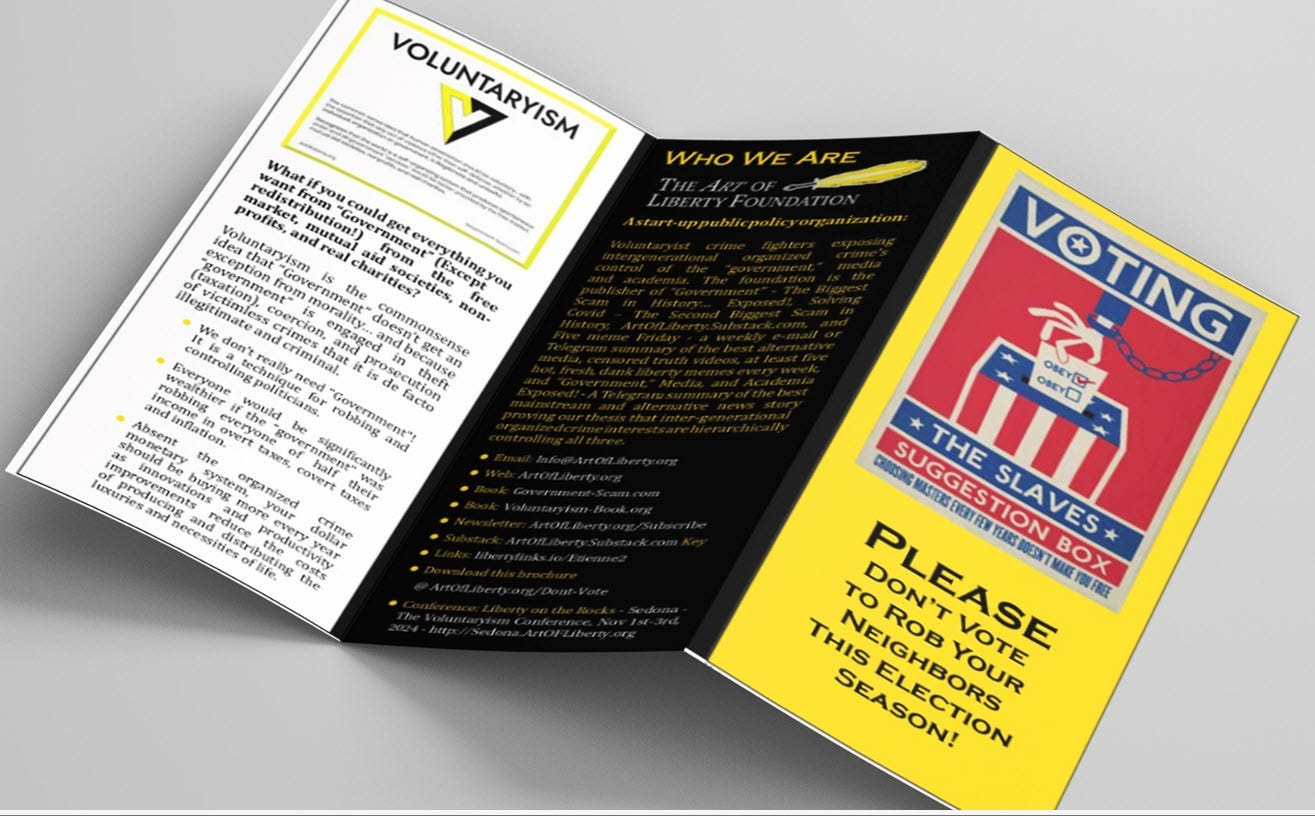Why Equality Is Bad
Many people oppose the free market because it leads to inequality of wealth and income. It is unfair
Many people oppose the free market because it leads to inequality of wealth and income. It is unfair, they say, that some people have vastly more money than others. Some defenders of the free market respond that these inequalities, while undesirable in themselves, make the poor better off than they would be otherwise, and so should be accepted. Another argument made by defenders of the free market is that restricting inequality would interfere liberty, so that, although inequality is bad, we have to put up with it.
While it is true that inequality makes the poor better off and that restricting inequality interferes with liberty, these are not the best arguments that defenders of the free market should use. They accept that inequality is bad, but we should reject this assumption. There is nothing bad about inequality.
People are unequal in every dimension of their being, including weight, height, muscle build, intelligence, and so on. This just the way the world is. Why should we try to change it? People who attempt this have a grudge against the world. They are not satisfied with the way God created it.
And of course they can’t succeed. As the great Murray Rothbard points out, absolute equality is impossible. No two places on earth, for example, offer precisely the same view.
If we shouldn’t defend the free market by arguing that it decreases equality, what should we do? Fortunately, there are many better arguments available. I’m going to list a number of them, but if you want more details, you should read Murray Rothbard’s Power and Market and Ludwig von Mises’s Human Action.
One of the best of these arguments is that the free market makes possible mutually beneficial gains from trade. If I have something that you want and you have something I want, we can make an exchange, so we are both better off. But what if our exchange makes someone else worse off? This question is a version of the “externalities” or “market failure” argument. The claim is that some of our activities, including trade, impose costs on others. If so, this indicates a failure to define property rights. Once we do so, the so-called “problem” dissolves.
This obviously raises another question. How do people acquire property rights? The best answer is given by Rothbard, further developed and extended by the great Hans-Hermann Hoppe. Everybody owns himself and, given that the earth starts out unowned, he can “mix his labor” with the land and thus acquire it.
Before leaving externalities aside, we should note another important argument. People who talk about externalities want the government to correct them, but what reason is there to think that the government will change things so that the supposedly “correct” amount is produced? There is every reason to think that the government will make matters worse.
There is an assumption that we have been making so far that should now be dropped. This assumption is that in deciding what sort of economic system to adopt, we have a choice. We can pick the free market, socialism, or some intermediate system that is a mixture of the free market and socialism. For any developed economy, this is not so, as Mises proved in his famous article “Economic Calculation in the Socialist Commonwealth” (1920), expanded into his great book Socialism. Mises proved that without free market prices, economic calculation is impossible. Entrepreneurs cannot tell whether their investments are profitable. So, they are unable to use their resources efficiently. If they cannot do this, the economy will collapse into chaos.
Further, there is no third system intermediate between the free market and socialism. Interference with the market fails to achieve the ostensible goals of its supporters. Minimum wage laws create unemployment. Price controls lead to shortages. Faced with failure, the interventionists must either return to the free market or intervene again, in an effort to remedy the defects of the previous intervention. If this is continued, there will be no free market left. The result will be full-scale socialism, which has already been shown to be impossible.
How did the socialists and interventionists respond to Mises’s conclusive demonstration that their schemes cannot work? They denied the existence of economic laws that restricted what they could do. As Mises says in Human Action, “It is a complete misunderstanding of the meaning of the debates concerning the essence, scope, and logical character of economics to dismiss them as the scholastic quibbling of pedantic professors. It is a widespread misconception that while pedants squandered useless talk about the most appropriate method of procedure, economics itself, indifferent to these idle disputes, went quietly on its way. In the Methodenstreit between the Austrian economists and the Prussian Historical School, the self-styled ‘intellectual bodyguard of the House of Hohenzollern,’ and in the discussions between the school of John Bates Clark and American Institutionalism much more was at stake than the question of what kind of procedure was the most fruitful one. The real issue was the epistemological foundations of the science of human action and its logical legitimacy. Starting from an epistemological system to which praxeological thinking was strange and from a logic which acknowledged as scientific–besides logic and mathematics–only the empirical natural sciences and history, many authors tried to deny the value and usefulness of economic theory. Historicism aimed at replacing it by economic history; positivism recommended the substitution of an illusory social science which should adopt the logical structure and pattern of Newtonian mechanics. Both these schools agreed in a radical rejection of all the achievements of economic thought. It was impossible for the economists to keep silent in the face of all these attacks.”
Thus, it’s the free market or nothing. We are fortunate that the only economic system is on that benefits everybody through the chance of making mutually advantageous exchanges.
This point leads to another argument we can use to defend the free market. In the free market, it’s to my advantage that others do well, because they can offer more goods and services to exchange. This will promote peace between nations. Why go to war with people who are making you better off?
Given the abundance of excellent arguments in favor of the free market, there is no need to use argument that accept the enemy’s premise that equality is a good thing. Let’s do everything that we can to support the genuine arguments in favor of the free market, as best expounded by Murray Rothbard and Ludwig von Mises.
We have a great “Go Paid” offer this week on Substack for the $50 a year level!
Get 100 copies of our tri-fold brochure, Don’t Vote to Rob Your Neighbors This Election Season, which breaks down the illogic and immorality of statism and explains the voluntaryist alternative.
Already a paid member? OR want another of our “Go Paid” Perks:
A copy of “Government” - The Biggest Scam in History… Exposed!,
A Liberator Flash Drive, or
A free virtual ticket to Liberty on the Rocks - Sedona - The Voluntaryism Conference + paperback copy of Etienne’s upcoming book: Voluntaryism - How the Only “ISM” Fair for Everyone Leads to Harmony, Prosperity and Good Karma for All?
You can buy copies of the Dont’ Vote to Rob Your Neighbors brochure at the Art of Liberty Store at Government-Scam.com/Store in 10, 25, 50, 75, or 100 bundles!
Click HERE to Order Professionally Printed High-Quality Copies from the Art of Liberty Foundation. Browse our other books & merch while you are in the store!
If you are a heavy hitter and would like to sponsor a little social experiment to distribute FIVE THOUSAND copies in Sedona (Population 10,000ish) before our Liberty on the Rocks conference, then e-mail me at Etienne(you know)ArtOfLiberty.org
Cost: $1776.00







"...but what reason is there to think that the government will change things so that the supposedly “correct” amount is produced? There is every reason to think that the government will make matters worse."
Indeed. That is the case throughout history. And doubly so with command economies that steal from the creative or the industrious to give to the inactive.
Only whiners complain about free markets and "inequality". In reality, there is no equality, whatsoever. There are personal goals and desires that motivate us. To para-quote Adam Smith and a little Henry J Kaiser, if all people act through self-motivation for their own benefit, all benefit, because prosperity can be personally obtained by "finding a need and filling it." This model is based on legal and moral brackets placed on behavior, naturally. People who fall outside them are not entrepreneurs or business people; they are crooks.
Every human endeavor is fraught with problems, but we should not judge a free market by captured markets run by oligarchs, elitists, and robber barons.
Everything is based on such wrong-thinking that it's difficult to find where to start. The idea of "property rights" for example, is fallacious, so everything built upon that is fallacious too. Why are property rights fallacious? Because nobody can own land in actuality. The land is for everyone and belongs to all including future generations. Ownership itself is a fallacy because there are always so many people involved in production that no one can really "own" anything, let alone land. However that doesn't mean we can't agree to a system that enables people domain over land for as long as they are alive. Everything would have to be different then and everything built upon it would then work for everyone. The fact that we have poverty at all is a testament to how stupid and insane this system is. A proper system would not produce poverty. Only because money comes into being through debt do we have poverty. When we talk about equality, it is too broad a term and so it is where we conflict unnecessarily with each other (this is built into the language BTW) Equality would make more sense if we referred to it as equality of voice, equality of say, so that anyone can speak their mind and be aired. But as it is, the people with money are the only ones to have a voice through their ownership and domination of the media (although that is changing now with digital technology, thank goodness). I agree it is silly to think that we have to be equal in what we desire and what we "own" because like you said, we are all different and viva for that. The idea of ownership needs a total overhaul if we want to advance beyond crudeness.